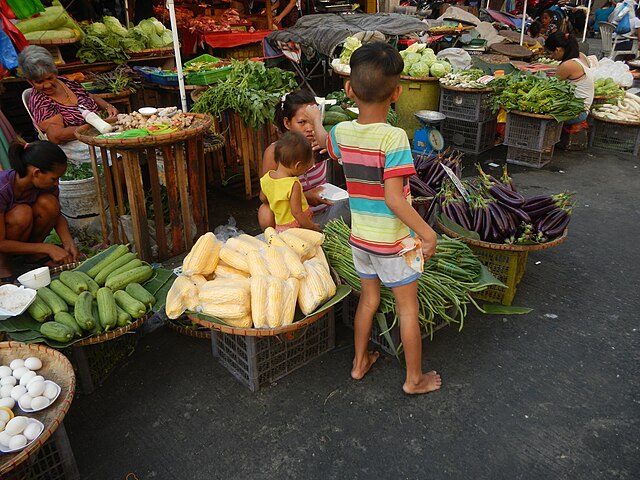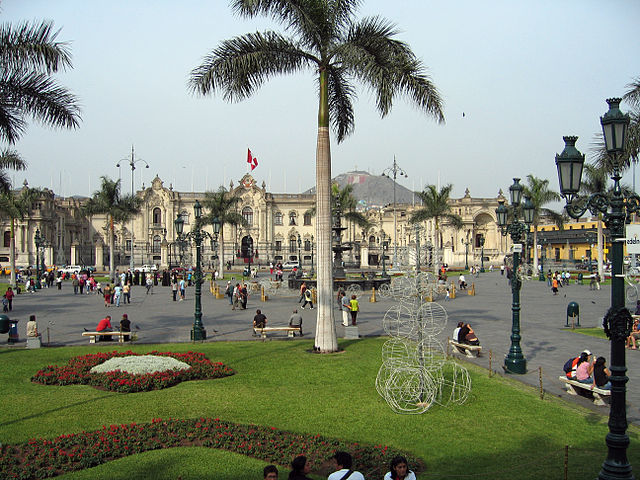Inclusive labor market participation is a critical factor in reducing inequality and informality in Latin America and the Caribbean. On June 27, 2023, authorities and experts gathered to inaugurate the Third Regional Seminar on Social Development organized by the Economic Commission for Latin America and the Caribbean (ECLAC) in collaboration with various institutions. The consensus among authorities, academics, and international officials at the opening of this three-day event held in Santiago, Chile, was that labor inclusion policies, combined with productive development and social protection policies, are key to reducing inequalities and the high levels of informality prevalent in the region.
The Third Regional Seminar on Social Development
Promoting labor inclusion as a means to overcome inequalities and informality in Latin America and the Caribbean is organized by ECLAC in collaboration with the International Labor Organization (ILO), the Norwegian Ministry of Foreign Affairs, German Cooperation, and the Ford Foundation.
During the inaugural session, José Manuel Salazar-Xirinachs, Executive Secretary of ECLAC (via video), Gilbert Houngbo, Director-General of the ILO (via video), Fabio Bertranou, Director of the ILO Office for the Southern Cone of America, Gundula Weitz, Head of the Latin America and Caribbean Division at the German Federal Ministry for Economic Cooperation and Development (BMZ) (virtually), Jostein Leiro, Norwegian Ambassador to Chile, and Javier Ciurlizza, Director of the Ford Foundation in the Andean Region, all participated.
“For ECLAC, labor inclusion is a goal of inclusive social development that seeks to ensure that all members of the workforce have access to decent jobs that guarantee adequate levels of remuneration and social protection coverage,” stated José Manuel Salazar-Xirinachs. He warned that “women, youth, persons with disabilities, those living in poverty, Afro-descendants, indigenous peoples, and other populations at the intersection of the structural axes of social inequality face greater obstacles and barriers to labor inclusion” in the region.
Salazar-Xirinachs, as the representative of ECLAC, emphasized that labor inclusion, primarily guided by labor ministries but heavily influenced by productive development processes and policies, is an essential component of any strategy to address the challenging social and labor situation in Latin American and Caribbean countries. “In this sense, it will not be possible to create a better future of work without creating a better future of production, and vice versa. They are two sides of the same coin,” pointed out José Manuel Salazar-Xirinachs.
During his intervention, Gilbert Houngbo, Director-General of the ILO, stressed that “unless concrete and coordinated actions are taken at multiple levels now, inequalities in the world of work will only worsen.”
“We need medium- and long-term policies that promote economic diversification, improvements in formal education, skills development, alignment between job supply and demand, and anticipation to enhance workers’ employability and productivity. Moreover, sustainable social protection measures and robust labor institutions are crucial for creating a safe and fair playing field,” said Houngbo, reaffirming the ILO’s commitment to collaborative work with ECLAC in these areas.
Fabio Bertranou underscored that “Latin America and the Caribbean are once again facing a specific and challenging conjuncture in terms of decent work policies, which requires a productive environment that drives productivity and opportunities for sustainable development.” He emphasized the interdependence between the future of production and work, emphasizing the need for integrated efforts.
Gundula Weitz from the German BMZ greeted the long-standing cooperation between Germany and ECLAC as well as countries in Latin America and the Caribbean. She highlighted the regional seminar as a platform for sharing experiences. Regrettably, she lamented that the economic recovery process in Latin America and the Caribbean is marked by the generation of informal jobs, in a region with more than 40% labor informality.
Ambassador Jostein Leiro also highlighted Norway’s long-term cooperation with ECLAC and countries in Latin America and the Caribbean. He affirmed that “decent work for women and men is crucial for social and economic development, representing the main gateway to equality, social integration, and the eradication of poverty.”
Lastly, Javier Ciurlizza from the Ford Foundation stated, “In Latin America and the Caribbean, there have been many unfulfilled promises. Labor inclusion is undoubtedly one of them. However, it is evident that the accumulation of these unfulfilled promises erodes the credibility of models, erodes the credibility of systems, and even erodes the belief system.”
Labor Market Challenges in Latin America and the Caribbean
The COVID-19 pandemic triggered the most significant crisis that labor markets in Latin America and the Caribbean have experienced since 1950, as highlighted by ECLAC. In 2020, during the pandemic, job creation declined by 8.2%, marking the only recorded decrease in the past 70 years. Between 2014 and 2023, the rate of employment growth is projected to be 1.26%, compared to 3.2% during the lost decade of the 1980s.
From 2002 to 2014, the labor market played a crucial role in reducing poverty and inequality in the region due to processes of formalization, according to the United Nations regional commission. However, this trend reversed starting in 2015 and significantly deteriorated with the pandemic, further deepening inequalities.
According to data from ECLAC, in 2022, 81.7 million people aged between 15 and 59 years (28%) from nine countries in the region were outside the labor market. Of this total, 57.1 million were women (70%).
A Comprehensive Approach to Labor Inclusion
The regional seminar also saw the launch of the book titled “Inequalities, labor inclusion, and the future of work in Latin America,” prepared by ECLAC under a collaboration agreement with the Ford Foundation. The book focuses on the challenges of labor inclusion within the context of the future of work for women, youth, Afro-descendants, and indigenous peoples.
The document proposes a comprehensive territorial approach to address the challenge of labor inclusion, bringing together macroeconomic efforts, productive development, labor policies, labor market policies, and contributory and non-contributory social protection policies.
Topics addressed during the three-day event include labor informality, child labor, youth labor inclusion, the present and future of work, skills development for labor inclusion, and the articulation between labor policies and social protection measures, among others.
Labor inclusion is a critical element in reducing inequality and informality in Latin America and the Caribbean. The Third Regional Seminar on Social Development highlighted the importance of labor inclusion policies, productive development, and social protection in addressing the challenges faced by the region. The COVID-19 pandemic further exacerbated existing labor market issues, necessitating concrete and coordinated actions at various levels to prevent the deepening of inequalities.
To create a better future of work and production, Latin American and Caribbean countries must prioritize labor inclusion as an integral part of their strategies. Efforts should be directed toward economic diversification, improving education systems, developing skills, aligning job supply and demand, and strengthening social protection measures and labor institutions. By promoting inclusive labor markets, these nations can reduce inequality, enhance social integration, and pave the way for sustainable development and poverty eradication.
The ongoing collaboration between ECLAC, the ILO, international partners, and regional governments signifies a commitment to addressing the labor challenges and advancing the cause of labor inclusion in Latin America and the Caribbean. It is through these collaborative efforts that the region can build a more equitable and prosperous future for all its inhabitants, ensuring that no one is left behind in the quest for social and economic progress.










